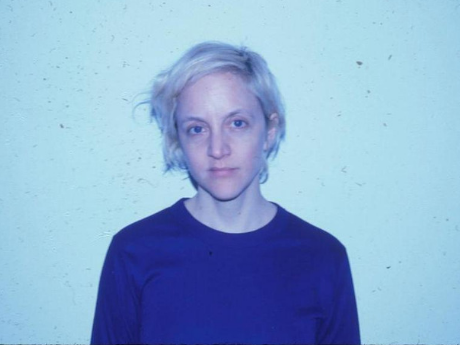Q & A: American Poetry
Q & A American Poetry: Cynthia Cruz

It's difficult for me to disentangle the question of "What's American about American poetry" from the question of "What's American about America." The issues that haunt America are the same issues that haunt American poetry. In the end, it seems to me that what is good about America is also what is good about American poetry, and what is not good for America is also not good for American poetry.
In what ways might you consider yourself an American poet?
I was born on an US Air Force Base in Germany. That it was a US military base and that my father is an American allows me to say I am an American poet. But I could also say I am a German poet because of my birthplace and the fact that my mother is German. Another question might be, "What makes me an American?" My love of American culture or, rather, my adoption of American culture? Or, perhaps, the simple fact that I grew up in the United States. Because, of course, I did: I grew up on Bundt cake, chocolate chip cookies, Scoobie Doo, American fashion magazines, and I attended public schools. I think, I dream, I breathe the United States of America.
Do you believe there is anything specifically American about American poetry past and present? Is there American poetry in the sense that there is said to be American painting or American film?
The incessant needThe incess to "make it new." This is an American trait and one that, I think, has a huge influence on our poetry. Another American trait is our compulsion to separate ourselves as different (more avant garde, for example) from one another, this, and the need to name and label other poets. This is not unlike our culture overall and how a huge part of marketing is about naming the newest whatever. In the end, conceived "newness" often trumps quality and thoughtfulness.
America is a kaleidoscope of cultures, influences, voices, etc. We are a hybrid nation so when I think about what is American about American poetry, I think of this. (I'm a hybrid: half German, half Mexican. Also, I grew up in Northern California where most if not all of my childhood friends were of mixed cultural backgrounds).
Personally, the work I am most moved by is work that reflects this vastness, this gorgeous chaotic kingdom of what we call "America." These are poets whose work reflects the dissonant chaos of our culture, its myriad languages, totems, and music; poets who, rather than compress down (which is an attempt to formulate a discrete answer) expand, go out, query in their work are the poets I am most inspired and drawn to. Some examples include: Whitman, Eliot, Graham, Rector, Wheeler and more recently: Liz Waldner, and Kathleen Graber.
What significance does popular culture possess in your sense of American poetry?
I am a product of the US. I grew up in the US within its culture and, specifically, in California. I grew up in malls, listening to punk rock (Southern California punk rock, to be specific) and skateboarding. I grew up in Santa Cruz California so I was surrounded by surfers, and beach culture. I listened to music day in and day out: European and American music and I grew up hanging out in downtown Santa Cruz, spending hours and weekends inside independent record shops, the local book shop. I may have spent half my teenage years buying records and going to shows—punk rock, again, in garages, and tiny venues. All of this—California (Northern California) culture influenced me and still does. And despite the fact that I no longer watch TV (I don't own one), I am always inside this culture and, as such, I it is my goal to continue to reflect the popular culture and the current state of things in my culture into my work. It is the aim, I think.
When you consider your own "tradition," do you think of American poets, non-American poets?
American poets I have been most greatly influenced by include Robert Lowell, Sylvia Plath, Emily Dickinson, T.S. Eliot, John Berryman, and then, more recent poets such as Liam Rector, Denis Johnson, Lucie Brock Broido, and Gjertrud Schnackenberg. I have also been greatly influenced by non-American poets, especially the Austrians and Germans: Nelly Sachs, Paul Celan, Georg Trakl, Thomas Bernhard, Ingeborg Bachmann, and WG Sebald.
Published 2010.


